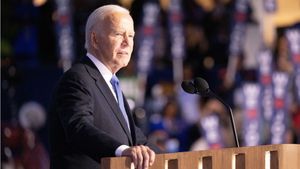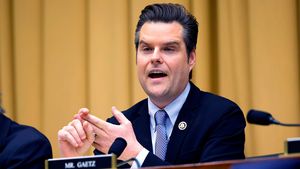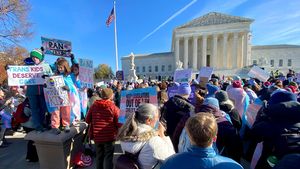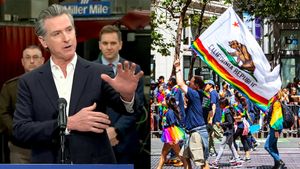In a profile in The New York Times Magazine, Kesha revealed the horrifying conditions she's been placed in as a result of continued legal battles against her producer and alleged rapist Dr. Luke.
"[Fans] were like, 'Oh, my gosh, you're free,' and I was like, 'No, sweetheart, I love you, but no, I am not, and I don't know where you got that information,'" Kesha explained.
Kesha filed accusations against Dr. Luke of drugging, raping, and emotionally abusing her in 2014, and was countersued hours later for defamation and breach of contract. Since then, the singer has been unable to release new music, even though, she reveals in the Times interview, she has 22 songs written, recorded, and waiting to be released.
The Times profiler was able to listen to four of the 22, and reported the first being called "'Hunt You Down,' which was a real country song with banjo and some real country sentiments: 'If you [expletive] around, I'll hunt you down.'" The next: "'Learn to Let It Go,' which sounded like something you'd hear in heavy rotation on radio with Kesha's beautiful, low voice singing that a happy ending is up to you." Third: "'Rose,"'a toast to an old boyfriend who has married. 'The good things never last,' she sings."
And, finally, the fourth song, "Rainbow." Taffy Brodesser-Akner of the Times described the song: "If it ever emerges from private listenings, it will be your favorite Kesha song. It's big and sweeping, and you can hear every instrument that Ben Folds and his associates played -- it does recall a Beach Boys vibe, just as she wanted it to... In the final section, her voice becomes stronger and more strained, and the effect is devastating. I asked to hear it three more times."
#FreeKesha.
UPDATE: Upon publishing, we received the following statement from Dr. Luke's lawyer, Christine Lepera:
"The New York Times Magazine profile piece that ran today unfortunately has many inaccuracies.
This article is part of a continuing coordinated press campaign by Kesha to mislead the public, mischaracterize what has transpired over the last two years, and gain unwarranted sympathy.
Kesha filed a shock and awe complaint of alleged abuse against Luke Gottwald in 2014 -- for contract negotiation leverage. It backfired.
She never intended to prove her claims. She has voluntarily withdrawn her California complaint, after having her counterclaims in New York for alleged abuse dismissed.
Nevertheless, she continues to maliciously level false accusations in the press to attack our client.
The reality is that for well over two years, Kesha chose-and it was entirely her choice-not to provide her label with any music.
Kesha was always free to move forward with her music, and an album could have been released long ago had she done so.
She exiled herself.
It was not until months after the denial of her injunction motion - for the first time in June and July 2016--that Kesha started to provide the label with music.
She provided 22 recordings created without any label consultation which were not in compliance with her contract, were in various stages of development, and which Kesha's own team acknowledged needed work. Then, and for the last several months, the label has been in discussions with Kesha and her team to choose the best music, create additional music, and work on the tracks created.
A&R representatives of both Kemosabe and RCA have provided Kesha with detailed feedback in writing and in person on the tracks she provided to help her further develop the material. Kesha has also agreed with Kemosabe and RCA on a list of producers who will work with her on these tracks, a studio has been reserved for these sessions, and a budget for certain work provided.
The creation of an album is a process, however what has clearly been communicated is that the aim is for a release date as early as possible. It is in the economic best interest of the label and Mr. Gottwald to put out a top selling album, and that takes time. In fact, the label suggested an early release of an advance Kesha track. It was Kesha's team who rejected this proposal.
Kesha's claim in the article that she has no ability to earn money outside of touring is completely rebutted by well documented public court records which apparently escaped the article's attention."



















































































Sexy MAGA: Viral post saying Republicans 'have two daddies now' gets a rise from the right